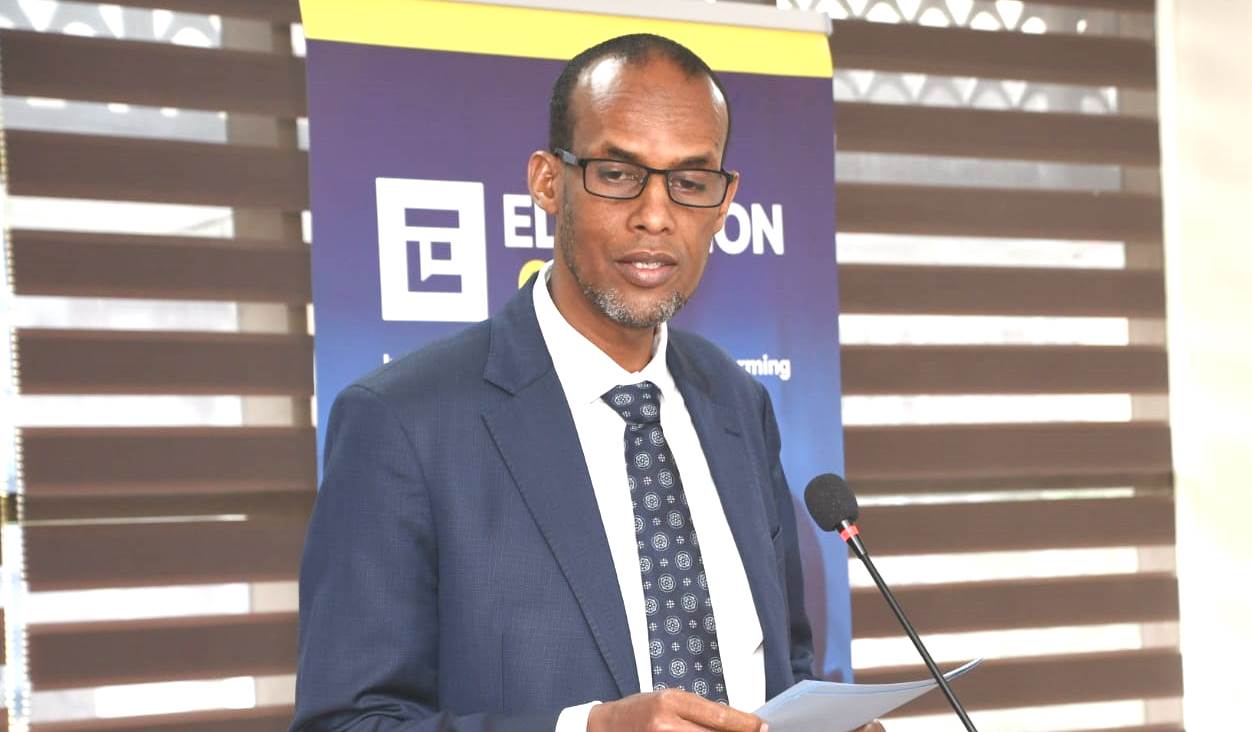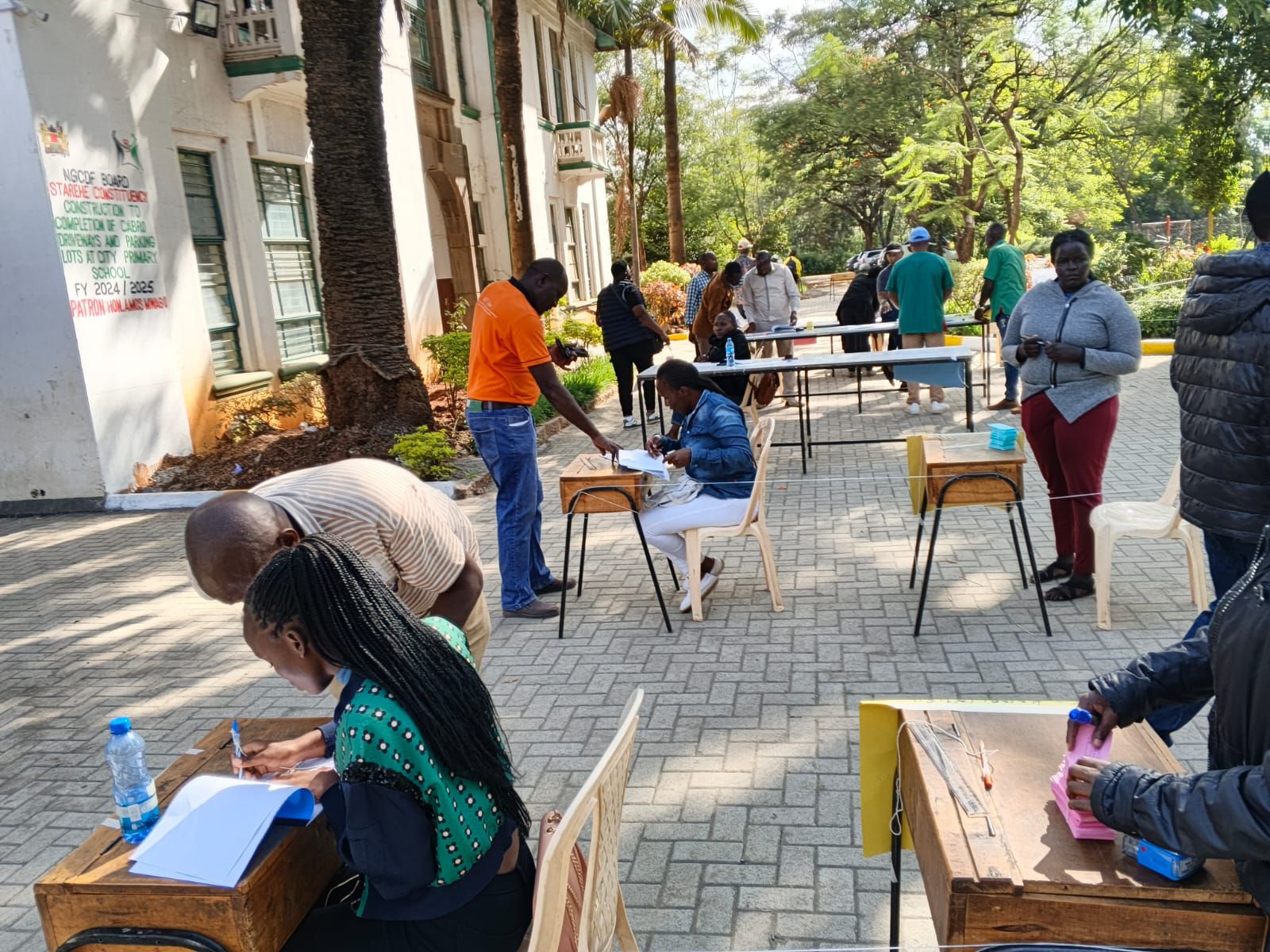The government has put in place a number of interventions to reduce cases of children absenteeism from school especially in the nomadic counties and informal urban settlements.
The Director General (DG) in the Ministry of Education Dr. Elyas Abdi told Education News on the sidelines of the launch of the International Working Group (IWG) at a Nairobi Hotel on June 14, 2023 that they have drafted measures to keep the children in school.
Among the key interventions include a feeding programme and giving the girls dignity kits (sanitary pads) in the Northern counties and urban informal settlements.
According to Dr. Abdi, despite the government supplying books and teachers to about 426 boarding schools in nomadic communities, the demand for education remained low, hence the need to support them to improve their living standards.
“Sometimes families and households are unable to demand for education because of the way of life. When you are in a nomadic setting, then the nearest school is 30, 50Kms away,” said Dr. Abdi.
A Survey conducted by the National Council for Nomadic Education in Kenya (NACONEK), in collaboration with United Nations Children’s Fund (UNICEF), revealed that Garissa, Wajir, Turkana, Marsabit, Samburu, Isiolo, West Pokot, Tana River, Mandera, Nairobi, Kilifi, Kwale, Kajiado, Narok, Baringo and Bungoma, are counties that had the highest numbers of out-of-school children.
It is contained in a report titled ‘Expansion of Operation “Come–To–School” Programme In Kenya; Baseline Survey on Out-Of-School Children Report’ released in 2021.
The 16 counties had a combined 947,413 out-of-school children, where 452,229 were boys while 495,184 were girls.
The highest numbers were recorded in Mandera (170,050), Garissa (166,010), Wajir (152,130) and Turkana (144,520), which collectively comprised of 632,710 children. The lowest numbers were recorded in Tana River, Bungoma and Kilifi.
The survey also revealed that there are 27,555 children living with disabilities, of whom 11,108 are girls, within the 16 select counties. The counties with the highest number of identified absentees include Turkana 4573 (2351 girls), Mandera 10,082(3248 girls), Garissa 4317(1728 girls) and Wajir 2874 (1144 girls).
Managing Director of Africa at Education.Org Dr. Kilemi Mwiria said that the organization worked with NACONEK on accelerated learning for children in Northern Kenya to ensure they are re-integrated into the formal school system and benefit from formal education opportunities that come along.
“In addition to providing the evidence and the data that is required, we are also supporting the professional development programmes with policy department in general to ensure that the policy leaders can better use that available evidence and better define their priorities,” he said.
According to data from Education.Org, 260 million children are not in school while 7 in 10 are not achieving basic literacy and numeracy skills.
It further shows that at least one in five children is not reached by traditional schooling as Covid-19 widened learning disparities, especially among girls and those with learning differences.
The International Working Group, which was a 2-day workshop held from June 14-15, 2023, brought together leading education policymakers, academics and practitioners from Kenya, Africa, and the rest of the world in exploring ways of using evidence to inform education reforms.
Dr. Abdi, who represented education Cabinet Secretary (CS) Ezekiel Machogu, said that accurate information has the potential to effectively enable learners to get quality education in school systems in Africa.
Abdi said the use of evidence from education research can help governments develop policies, programmes and projects that greatly improve foundational learning to ensure that children are able to understand the curriculum without hindrance.
“We must ensure that the children who get into school actually learn,” he remarked, saying if they cannot read, they cannot learn.
Education.Org’s chief executive (CEO) Dr. Randa Grob-Zakhary said the organization aimed to harness evidence from education research and analyze it for use by national education systems for policy formulation.
“Greater use of the invaluable experience and insights of African practitioners and researchers will lead to improved education policies and better outcomes for children and young people in Kenya and around the world,” she said.
Education.Org is planning to achieve three major strategic goals; one – establishment of an evidence synthesis standard for education system leaders by pioneering and promoting a new method of evidence synthesis.
Secondly, to catalyze a transformation in the way education leaders work with evidence, and thirdly, to lead a global movement by forging a network of individuals and partnering with organizations which share in its commitments to evidence-informed policy making.
By Roy Hezron
Get more stories from our website: Education News
You can also follow our social media pages on Twitter: Education News KE and Facebook: Education News Newspaper for timely updates.






